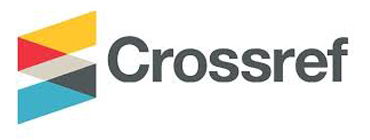THE EFFECT OF HANGMAN GAME TOWARDS STUDENTS’ VOCABULARY MASTERY AT THE SEVENTH GRADE STUDENTS OF MTS HIFZIL QUR’AN MEDAN IN THE ACADEMIC YEAR OF 2020/2021
Abstract
Vocabulary is one of the most basic elements of language learning that students have to master. Therefore, students are hoped to be able to understand the meaning of the words correctly. But in fact, the researcher found that students’ ability in vocabulary was still low. Using the appropriate technique will help students acquire more vocabulary. Hangman game is considered to be one of the most effective techniques to improve students’ vocabulary mastery. The formulations of this research problem as follows: 1) How are the students’ vocabulary mastery before being taught using Hangman game? 2) How are the students’ vocabulary mastery after being taught using Hangman game? 3) Is there any significant difference in students’ vocabulary mastery between students who are taught by using Hangman games and those who are taught by using the conventional technique? The method used in this study is quantitative method with quasi experimental research design. The researcher chose VII-2 as the experimental class and VII-3 as the control class. The findings of this research show that teaching vocabulary using Hangman games technique was effective. It can be seen by the t- value (3,649) is higher than t-table (2,024) with 5% (0.05) significance level and the Sign. (2 tailed) is 0.001 with alpha (α) was 0.05 (0.000 < 0.05). Hence, Ho (Null Hypothesis) was rejected and Ha (Alternative Hypothesis) was accepted. It showed that there was a significant difference using the Hangman games technique on student vocabulary mastery.
Full Text:
PDFReferences
Bromley, Karen. 2004. The Language and Literacy Spectrum. New York: the New York State Reading Association
Cameron, Lyne. 2001. Teaching language to young learners. New York: Cambridge University Press
Denise F Polit and Cheryl Tatano Beck. 2004. Nursing research: Principles and Methods. 7th edition. Philadelphia: Lippincott Williams & Wilkins.
Frank, Marcella.1972. Modern English a Practical Reference Guide. Jersey: Prentice Hall. Inc.
Gobetti, Daniella, Cristianta Mora Thielman, and Chiara Marchelli. 2008. Intermediate Italian for Dummies. Canada: Wiley Publishing, Inc.
Hornby, A. S. 1974. The Oxford Advanced Learner’s Dictionary of Current English. London: Oxford University Press.
Hornby, A. S. 2003. The Oxford Advanced Learner’s Dictionary of Current English. New York: Oxford University Press.
Judy K. 2007. The Bridge of Vocabulary: Evidence Based Activities for Academic Success. USA: NCS Pearson Inc.
Kim, Lee Su. 1995. Creative Games for the Language Class. Forum, 33(1), 35- 36.
McCarten, Jeanne. 2007. Teaching Vocabulary Lessons from the Corpus, Lessons for the Classroom. USA: Cambridge University Press.
Nation, I. S. P. 1974. Teaching and learning vocabulary. English Teaching Forum, 12(3), 18-21.
Novriana, Anita, Muhammad Asrori, and Martono. 2013. Improving Vocabulary Mastery Through Hangman game to Elementary School Student. Surakarta: University of Sebelas Maret.
Nunan, David. 2003. Practical English Language Teaching. New York: McGraw Hill Company.
Oliva, Maria Belen, Patricia Meehan, and Maria Candelaria Luque Colombres.. 2018. Introducing English grammar: ciclo de nivelación 3a ed. órdoba: Universidad Nacional de Córdoba.
Parkin, Adam Robert. 2005. Educational Gems: An Exploration and Evaluation of a Visual Functional Programming Environment. Victoria: University of Victoria.
Prasetiawati, Nofi. 2013. Teaching Vocabulary Using Hangaroo Game in the Fourth Grade Students of Elementary School. Purworejo: University of Muhammadiyah Purworejo.
Prima Ardya Mukti. 2012. Improving Students’ Vocabulary Mastery Using Cartoon Films (A Classroom Action Research on the Fourth Grade of SDN 01 Mojosongo in 2009 / 2010 Academic Year). Surakarta: Sebelas Maret University.
Thornbury, Scott. 2002. How to Teach Vocabulary. England: Pearson Education Limited.
Tyson, Rodney E. 2000. “Serious” fun: Using games, jokes, and stories in the language classroom. Class handout.
Ur, Penny. 1998. A Course in language teaching: Practice and Theory. Cambridge: Cambridge University Press.
Wirawan, Bramantyo Shandi. 2013. The Effectiveness of Hangman game in Teaching English Vocabulary. Purwokerto: Muhammadiyah University of Purwokerto. Wright, Andrew, David Betteridge, and Michael Buckby. 2006. Games for Language Learning. Cambridge: Cambridge University Press.
Swick, Ed. 2005. English Grammar for ESL Learners. Mc.Growhill: New York.
White, H., and Sabarwal. S. 2014. Quasi-experimental Design and Methods: Methodological Briefs- Impact Evaluation No. 8. UNICEF OFFICE of Research, Florence.
Harmer, Jeremy. 1991. The Practice of English Language Teaching. New Edition. London: Longman.
Harmer, Jeremy. 1998. How to Teach English: An Introduction to the Practice of English Language Teaching. New Jersey: Longman.
Hadfield, Jill. 1990. A Collection of Games and Activities for Low to Mid- Intermediate students of English: Intermediate Communication Games. Hong Kong: Thomas and Nelson and Nelson and Sons Limited.
Hadfield, Jill. 2001. Intermediate Vocabulary Games. England: Longman.
Refbacks
- There are currently no refbacks.

This work is licensed under a Creative Commons Attribution-NonCommercial-ShareAlike 4.0 International License.
INDEXING
Bright Vision by UIN Sumatera Utara Medan is licensed under a Creative Commons Attribution-NonCommercial-ShareAlike 4.0 International License.
Based on a work at http://jurnaltarbiyah.uinsu.ac.id/index.php/brightvision.









